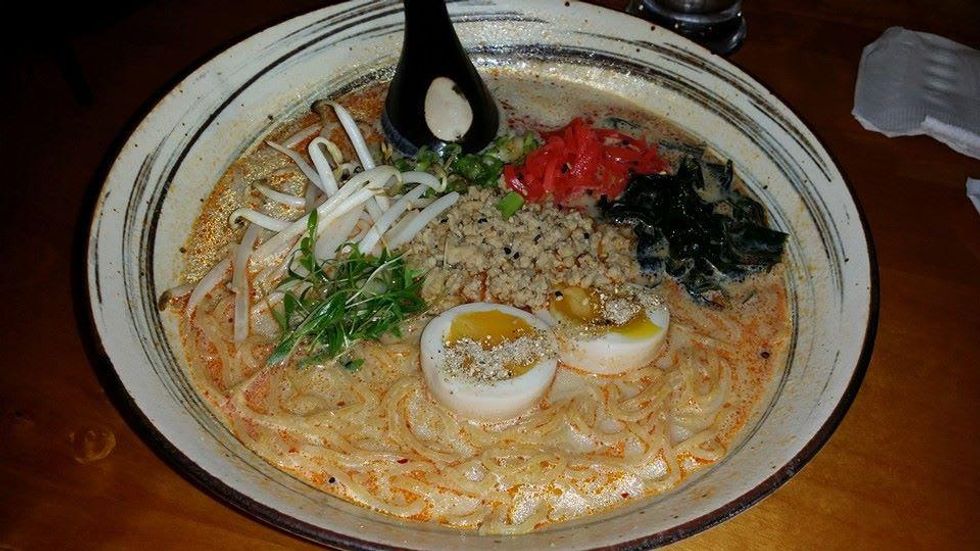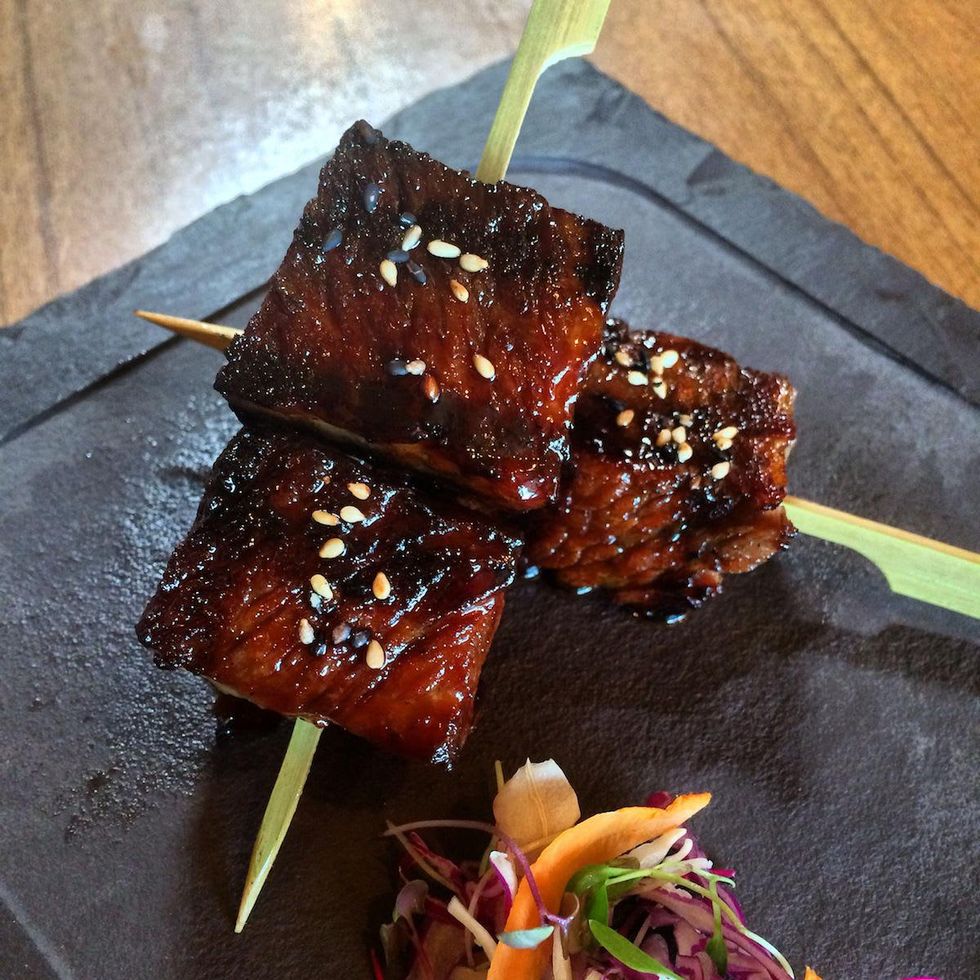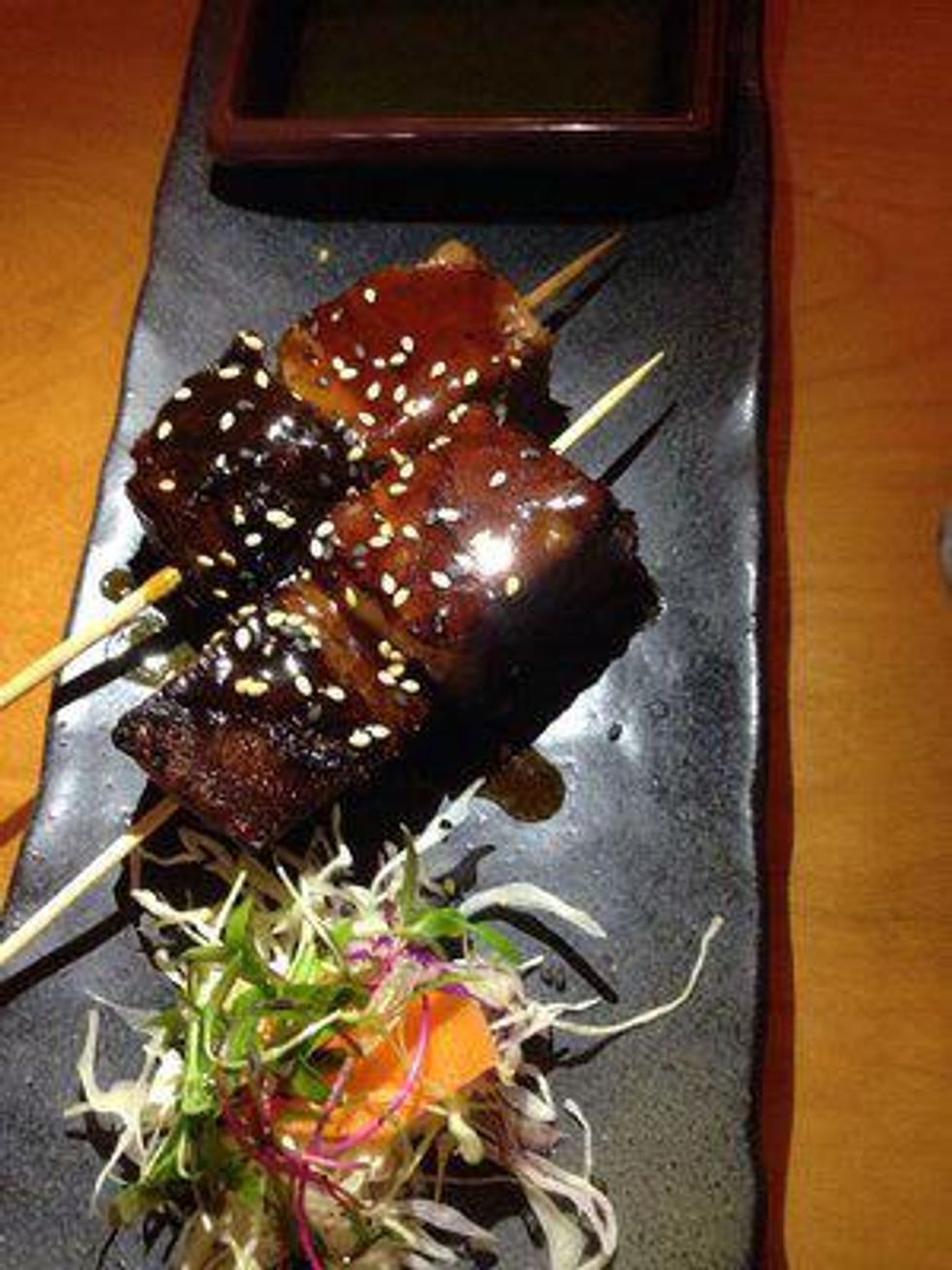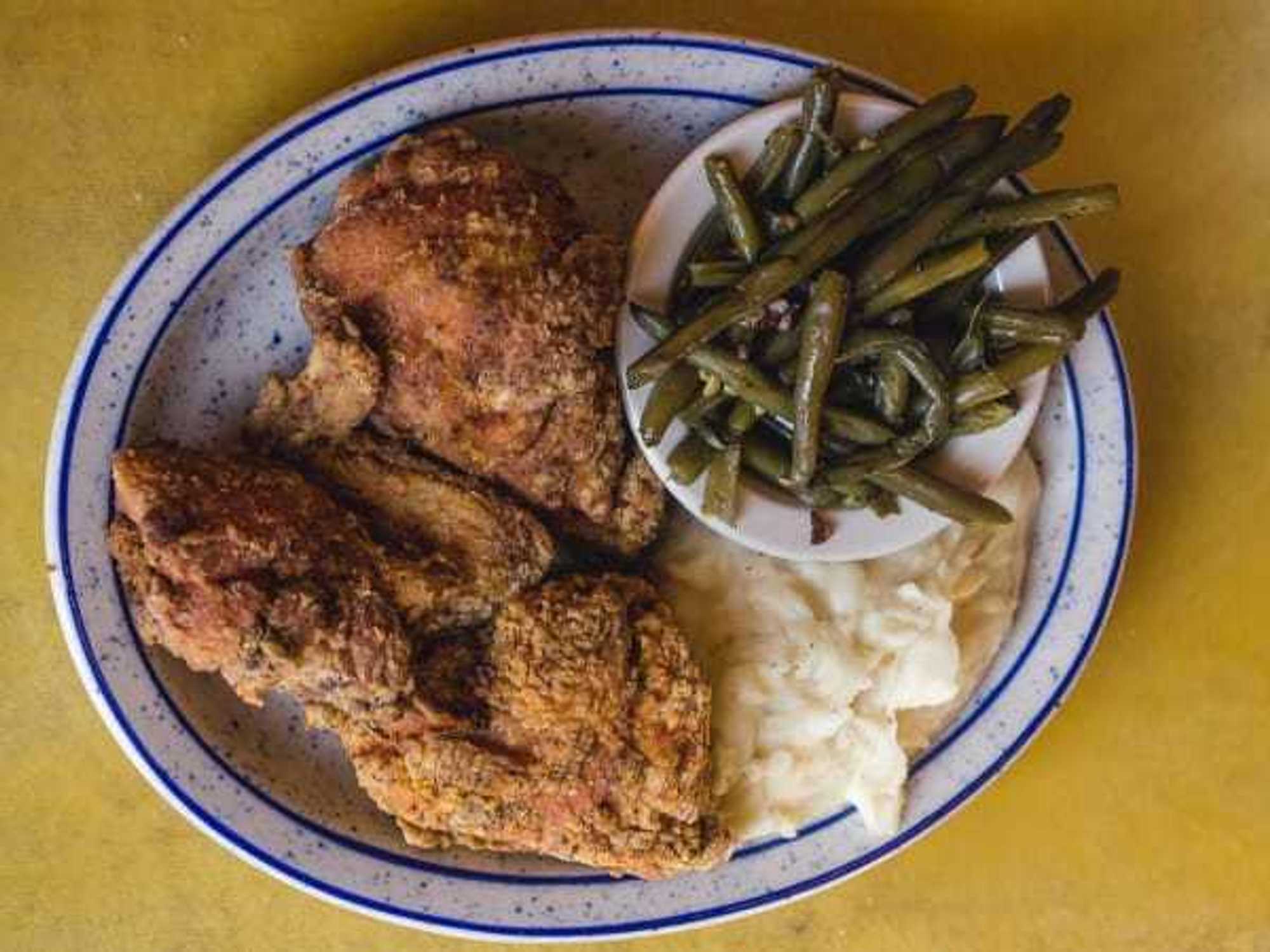Restaurant Feud Puzzles
Foodie feud: New Sugar Land restaurant copies Kata Robata's menu, claims it's a weird "accident"
If imitation is the sincerest form of flattery, then Kata Robata chef Manabu Horiuchi ought to feel very flattered indeed. At least, that certainly seems to be what's going on with Mochi Sushi, a two month-old restaurant in Sugar Land that appears to have lifted both its menu items and descriptions straight from Kata.
"The chefs at this restaurant are former employees of Kata Robata who trained under chef Hori," Kata Robata general manager Blake Lewis tells CultureMap. "When they left, we wished them well, as we do now, and are happy to see them out on their own."
Judging by pictures of food items posted online, they took more than memories with them.
Take, for example, Kata's signature Uni Chawanmushi, a Japanese-style egg custard that includes fresh sea urchin (uni), chicken, shrimp, shiitake mushrooms and gingko nuts. A dish with the same name and description appears on Mochi's menu that's posted to the restaurant's Facebook page. The coincidences keep coming: Kata's signature lobster mac and cheese, 72-hour slow-cooked Kobe beef skewers and salmon and soft shell crab sushi rolls all have spots on Mochi's menu.
Mochi's spicy miso ramen uses the exact same bowl and spoon that Kata's does.
The situation takes a turn for the weird when the issue of plating comes up. As noted on the Ramen in Common Facebook page, Mochi's spicy miso ramen uses the exact same bowl and spoon that Kata's does. If that isn't enough, Mochi posted the same Happy Father's Day graphic to Facebook that Kata did.
Lewis acknowledges that Kata doesn't have any legal recourse against the chefs, although the restaurant does plan to have future employees sign contracts to prevent them from using Kata's intellectual property once they leave. Still, the restaurant is spreading the word to prevent any further confusion from diners, because some have contacted Kata to ask if the Azuma group has a restaurant in Sugar Land other than Azuma on the Lake.
"We want people to understand that it’s not one of our stores. Although they’re copying a lot of our dishes it’s not our store. It’s just two former sushi chefs and one former kitchen chef," Lewis says.
Reached for comment, a manager at Mochi said he didn't realize there were similarities between the restaurant's menu and Kata's. "If something is the same, it's an accident," he added but he declined to put any of the chefs on the phone to answer for themselves. Whether the ideas are original or not, the dishes are successful; Mochi has five stars on Yelp with 14 reviews, most of which praise the deliciousness of the food.
One thing that's worth clarifying is that none of this is illegal. Recipes and plating styles aren't subject to copyright protection. Kata hasn't filed any sort of lawsuit like Torchy's or Russo's NY Pizzeria did last year when they alleged companies stole their trade secrets. Still, the issue of authorship and influence comes up from time to time in the food world. Eater explored the topic back in 2012, and New York chef Wylie Dufresne thinks chefs deserve more credit for authorship of their dishes.
"Dishes are just as personal and laborious as other works of art, yet people get away with copying in cooking far more than they do in other disciplines," he said at the time.
Despite the borrowing, Lewis isn't concerned about a loss of business. "They’re obviously not doing it up to the standard that Hori-san does," he says.
Eventually, Lewis hopes the problem works itself out. "We imagine with their talents and skills, they will soon start creating their own signature dishes rather than just copying ours. I'm sure that is one of the objectives of emerging from being an employee to a chef/owner."




